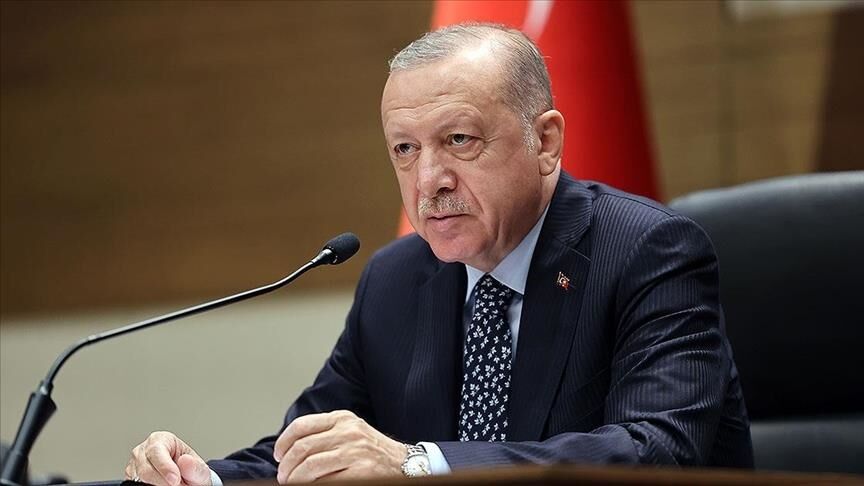Although Erdogan had to cancel his decision under the internal and external pressures as well as the crisis created for the economy of the country but the issue indicated how the ambitious programs of the president of Turkey has created crisis for the country.
The decision made by Erdogan was going to become the biggest crisis between Turkey and the West during 19 years of his sovereignty even motivated the opposition of former fellow companions of the president such as Ahmet Davutoglu. In reaction to Erdogan’s position, Davutoglu stated:” such a measure would tarnish the political and historic reputation of Turkey”.
Likewise, seasoned diplomats such as “Uguz Demir Alp” and “ Farug Lugoglu” also emphasized that if the aforementioned ten countries take a reciprocal action and expel the ambassadors of Turkey from their capitals, then Turkey would fall into a diplomatic crisis and would be isolated.
The diplomats emphasized the point that Turkey has had special economic, social and cultural relations with these countries and if the decision is materialized, we would enter into one of the (most) difficult junctures of the contemporary history of Turkey. The ten countries are the destinations of most Turkish exports, and any diplomatic tension at such a level could leave profound effects on the economy of Turkey.
On the other side, the ambassadors of 10 European countries who were summoned to the Ministry of Foreign Affairs of Turkey for receiving a notice, warned Ankara of the possibility of sanctions imposed by the Council of Europe if Kavala would not be released before the end of the year 2021 and this time the Council of Europe itself would file a lawsuit against Turkey at the European Court of Human Rights (ECHR).
If the complaints continue, this may cost the country to lose voting right and veto right in the Council of Europe, where Turkey herself was one of its founders. In case of Turkish insistence on her positions, it may even lead to the annulment of her membership in the Council of Europe.
Kaval is the owner of a big publishing center in Turkey and through his organization called Anadolu Cultur he promotes the dialog with ethnic groups such as Kurds and Armenians. He is also the founder of Turkish branch of “Open Society” foundation which was established by American George Soros.
Some believe that the recent measure taken by Erdogan in threatening to expel 10 Western ambassadors is firstly a reaction to unsettled issues between Turkey, the U.S. and Europe. Secondly the measure is taken in order to divert the public opinion from economic problems and to strengthen the social body of Justice and Development Party.
Amid all this, two points should be mentioned: first, because of her support to Muslim Brotherhood, Turkey continues to have problems in her relations with Arab countries (particularly Saudi Arabia and UAE) of the Persian Gulf region and with Egypt in Africa. Trade obstacles created after this issue especially downgrading the level of trade relations of Turks with markets of Arab countries in the Persian Gulf has affected Turkish economy. From the other side, because of her offensive and ambitious regional policies in Syria and Libya, Turkey suffered from huge economic costs; this has caused the reaction of political fractions and opposition leaders inside Turkey. In this connection Klicdaroglu, leader of Halk republican leftist party criticized Erdogan’s policy for supporting terrorism and stated:” Erdogan has turned Turkey into an arena for ISIS and terrorist groups. This has caused the killing of Turkish soldiers by Russians in Syria”. Indications of economic crisis emanated from the expeditions to Syria, Iraq, Libya and Azerbaijan have cast shadow over Turkish economy for a while and recent events that helped sudden devaluation of Turkish Lira is only the tip of the iceberg of a profound economic crisis in Turkey.
Another point to be mentioned is that the foundation of Turkish economy is based on foreign investment and tourism and the foreign policy of Turkey during the recent years has precisely targeted the two main elements. Such structure in the economy (of the country) caused tensions like the recent one that took place between Turkey and the West would immediately effect the Turkish economy and engage the country in an economic – social crisis. In view of the background of disputes between Turkey and the West on issues like migrants, military cooperation with Russia and human rights as well as new tensions with the West emanated from the recent event, one can expect a new round of political tensions between Turkey and Europe will intensify. Issues like Marash region of Cyprus which was reopened contrary to the decision made by the Security Council of the United Nations and the expansionist presence of Turkey in Mediterranean can be placed in the agenda of Europe and thus create new opportunities for Greece and Cyprus action.










0 Comments